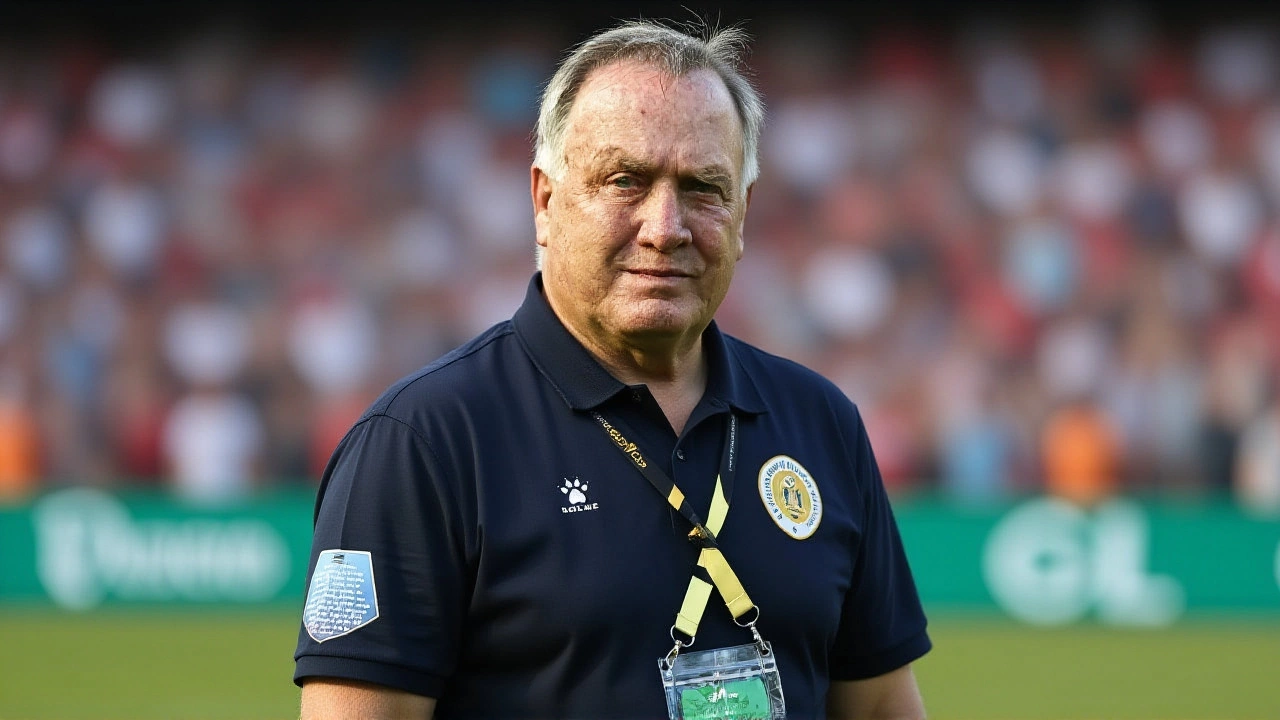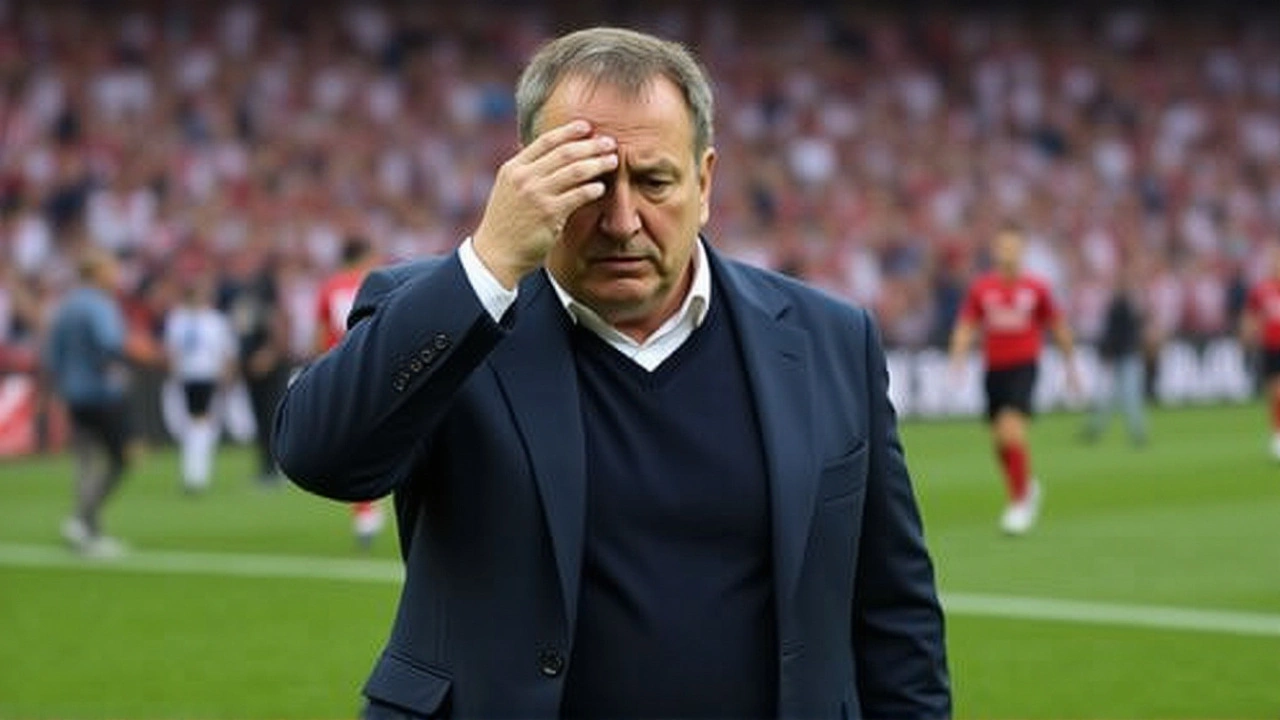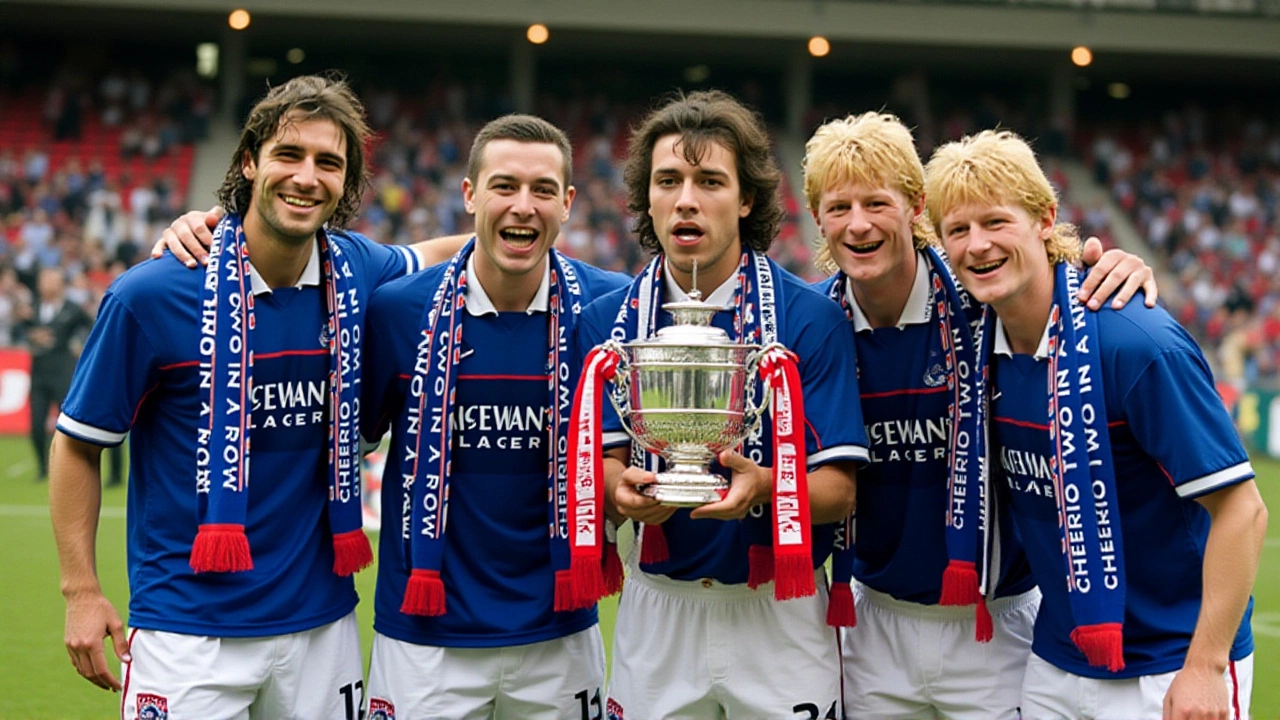Since 2011, Rangers Football Club has chased tactical trends while ignoring the foundation that once made them Scottish giants. Now, current manager Russell Martin insists the methods of Walter Smith and Dick Advocaat were wrong — even as results keep sinking. The irony? The very principles Smith and Advocaat built — solid defense, a hard-working spine, and counter-attacking precision — are exactly what Ibrox Stadium needs to win again. Instead, Martin’s team plays a diluted version of Barcelona’s style, and it’s falling apart.
What Walter Smith Actually Built
Walter Smith didn’t dazzle with flair. He didn’t need five stars. He built a machine. His Rangers teams from the late 1980s through 2007 were built on a solid spine — reliable defenders, disciplined midfielders, and a striker who finished chances, not one who danced past three men. At most, he had one genuine superstar — a player like Ally McCoist — and even then, the system came first. His teams weren’t pretty. They were effective. They won 10 league titles under him because they didn’t break. They didn’t collapse under pressure. They didn’t chase possession for the sake of it.
It’s easy to forget now, but Smith’s Rangers didn’t play for highlight reels. They played for clean sheets. They played for set pieces. They played for the kind of football that wins in freezing November nights at Ibrox when the wind howls and the crowd roars. That’s not nostalgia. That’s strategy.
Dick Advocaat and Alex McLeish: The Last Holdouts
When Smith left, Dick Advocaat stepped in — officially taking over in February 2007, according to The Rangers Archives. He didn’t reinvent the wheel. He understood the Scottish Premier League. He knew the physicality, the pace, the weather. He kept the defensive structure but added tactical discipline. He didn’t demand possession. He demanded control.
Then came Alex McLeish. He inherited a squad in decline after the club’s financial collapse. Yet he won the 2008-09 title — the legendary "Helicopter Sunday" — with players out of position, injuries everywhere, and a budget slashed in half. How? He adapted. He used the same principles Smith and Advocaat did: compact shape, quick transitions, and ruthless efficiency. He didn’t try to be Barcelona. He tried to be Rangers.
McLeish’s success wasn’t luck. It was continuity.
The Post-2011 Collapse: A Pattern of Denial
Since 2011, the pattern has been relentless. Mark Warburton brought the tiki-taka dream. Pedro Caixinha imported Spanish formations that ignored Scottish weather and physicality. Jimmy Murphy tried to be a Premier League tactician on a budget that couldn’t support it. And now? Russell Martin.
He’s the latest to insist Smith and Advocaat were wrong. He’s got more money than any manager since the 2010s. He’s signed players with Premier League pedigrees. And yet — results have only gone downhill. Why? Because he’s still trying to play an English Championship style — possession-heavy, high-pressing, but lacking the defensive resilience that defines Scottish football at its best.
It’s not about money. It’s about mindset. The club keeps hiring managers who think they’re upgrading the club — not adapting to it.

Why Ibrox Needs a Different Kind of Leader
Let’s be clear: the problem isn’t Russell Martin personally. It’s the club’s culture. For 15 years, Rangers have treated managerial appointments like a fashion show — chasing the latest trend instead of building a philosophy. They want the look of success — the flashy signings, the social media buzz, the tactical buzzwords — but they won’t commit to the work of it.
Meanwhile, Celtic, their rivals, have quietly built a system around physical conditioning, set-piece dominance, and defensive organization — the same traits Smith and Advocaat mastered. They didn’t need to reinvent the wheel. They just needed to keep turning it.
At Ibrox, the fans still remember the sound of the crowd when a backline held firm. They remember the roar after a 1-0 win in the rain. That’s not romanticism. That’s identity.
Who’s Really to Blame?
And then there’s Sir David Murray. Bleacher Report doesn’t mince words: "Without a doubt, Sir David Murray is more responsible for the demise of Rangers than any of Craig Whyte, Dick Advocaat and Walter Smith."
It’s a damning claim — and it’s true. Murray’s decade-long mismanagement, from reckless spending to ignoring the club’s financial health, created the conditions for collapse. But here’s the twist: even after the financial meltdown, the club didn’t learn. Instead of rebuilding with discipline, they kept hiring managers who promised glamour — not grit.
Smith and Advocaat didn’t fix the club’s finances. But they won titles anyway — because they worked within the system. The current regime isn’t failing because of bad luck. It’s failing because it refuses to see the system for what it is.

What’s Next? The Cycle Won’t Break Until the Board Does
Unless the Rangers board wakes up, this cycle will keep repeating. Martin will be sacked. A new name will be announced. Another "modern" system will be sold to fans. Another season will end in disappointment. And the same question will be asked: "Why do we keep doing this?"
The answer is simple: because they’d rather believe in a fantasy than face reality. But football — especially at Ibrox — doesn’t care about trends. It cares about results. And results are screaming the same thing for 15 years: go back to what worked.
Frequently Asked Questions
Why doesn’t Russell Martin adopt Walter Smith’s style?
Martin claims Smith’s methods are outdated, but he hasn’t explained how his own 4-3-3 system — designed for the English Championship — works against the physicality and pace of the Scottish Premiership. His squad has more Premier League experience than any Rangers team since 2010, yet they concede more goals per game than under Warburton. The disconnect isn’t tactical — it’s philosophical. He’s trying to prove he’s "modern," not effective.
How did Dick Advocaat succeed after Walter Smith?
Advocaat didn’t change the core structure Smith built. He kept the defensive solidity and added tactical discipline, particularly in midfield transitions. He understood that Scottish football rewards efficiency over elegance. His Rangers won the 2008 Scottish Cup and finished second in the league — a feat made harder by the club’s financial instability. He didn’t need to be flashy. He needed to be smart.
Is Alex McLeish’s 2009 title win relevant today?
Absolutely. McLeish won the league with a squad decimated by financial cuts and injuries — using players out of position, including a centre-back at right-back and a midfielder in goal. His success came from adaptability and understanding the league’s demands. Today’s Rangers have better players but worse results. The lesson? Resources don’t win titles — insight does.
Why is Sir David Murray blamed for Rangers’ decline?
Murray’s decade-long tenure saw reckless spending on wages and transfers, failure to modernize the club’s finances, and refusal to address ownership structure. When the club collapsed in 2012, it wasn’t because of bad luck — it was because of mismanagement. Even after the liquidation, the board didn’t reset its philosophy. They just hired new managers to chase the same failed ideas.
Can Russell Martin still turn things around?
He could — but only if he abandons his belief that Smith and Advocaat were wrong. The data shows Rangers win more when they play compact, defend deep, and counter quickly — exactly the traits Smith championed. Martin’s team has lost 11 of their last 20 league games. The problem isn’t the players. It’s the system. Until the manager admits the past held answers, the future won’t change.
What’s the long-term solution for Rangers?
The long-term fix is simple: hire a manager who respects the club’s history, not one who wants to erase it. That means prioritizing defensive organization, physical conditioning, and set-piece mastery over possession stats. It means building from within — not buying expensive names. And it means the board finally understanding that Ibrox isn’t Stamford Bridge. It’s a fortress built on grit, not glamour.
